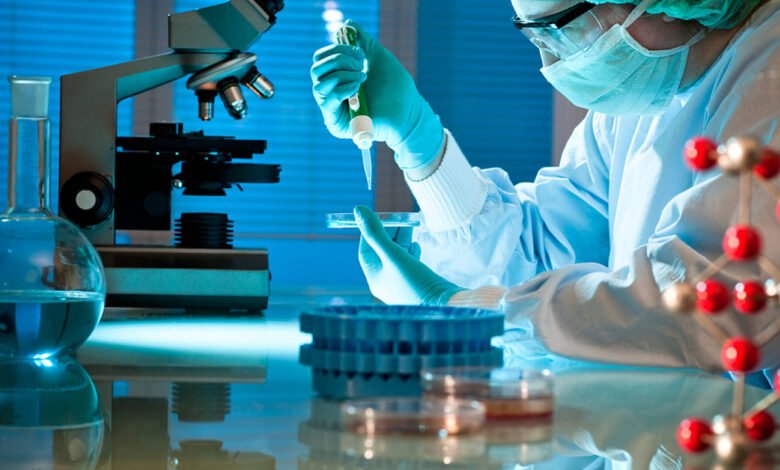Forensic Biotechnology: A Modern Approach to Crime Solving

Introduction
Forensic biotechnology is a fascinating intersection of biology and law enforcement. It combines the principles of biological sciences with advanced technological applications to aid the criminal justice system. This multidisciplinary field has revolutionized crime scene investigations and legal procedures, providing indisputable evidence that has convicted the guilty and exonerated the innocent.

What is Forensic Biotechnology?
At its core, forensic biotechnology involves the use of natural processes and organisms in assaying substantiation related to felonious, legal, and investigative matters. With the arrival of ultramodern molecular biology ways, the delicacy and perfection of forensic substantiation have reached unequalled heights. DNA, due to its unique signature in every individual, provides a robust tool for forensic investigations.
The Rise of DNA Profiling
DNA profiling, often the most associated technique with biotechnology, emerged in the mid-1980s. British geneticist Dr Alec Jeffreys discovered that each individual possesses unique DNA patterns, giving birth to DNA fingerprinting. These fingerprints don’t change throughout an individual’s life and are consistent across every cell, making them an impeccable marker for identification.

Applications in Crime Scenes
Biotechnology isn’t restricted to just DNA fingerprinting. While DNA plays a pivotal role in human identification, forensic biotechnologists also employ other techniques, such as analyzing microbes, insects (entomology), and plants in a crime scene to deduce crucial information. For instance, the kind of bacteria or insect found on a corpse can help estimate the time of death.
The Future of Biotechnology
With rapid advancements in technology, biotechnology continues to evolve. The future may see a wide use of technologies similar to Generation Sequencing( NGS) for quicker and more detailed DNA analyses. Also, the rise of bioinformatics and machine literacy can further help in processing massive datasets, streamlining examinations, and making them more effective.
Challenges and Ethical Concerns
Like any other wisdom, biotechnology is not without its challenges. There is always a threat of impurity or mishandling of samples. Moreover, the ethical implications of storing and accessing DNA databases raise valid concerns about privacy and potential misuse.

Conclusion
Biotechnology has undeniably transformed the landscape of criminal investigations. It provides a harmonious blend of biology and technology, ensuring justice through irrefutable evidence. As with any scientific bid, maintaining the loftiest norms of ethics and delicacy. The coming times are poised to witness more advancements in this field, making biotechnology a necessary tool in the justice system.
FAQs of Forensic Biotechnology: A Modern Approach to Crime Solving
How does DNA fingerprinting work in forensics?
DNA fingerprinting, or DNA profiling, involves analyzing the unique regions of an individual's DNA to create a distinct 'fingerprint'. Since every individual has a unique DNA pattern (except identical twins), it can be used to identify or eliminate suspects from crime scene investigations.
Is DNA evidence foolproof?
While DNA evidence is highly reliable when samples are handled and processed correctly, it could be more foolproof. Contamination, degradation, or mishandling of samples can affect results. Moreover, DNA presence only confirms that an individual was at a particular place, not necessarily their involvement in a crime.
What other biological elements are used in forensic biotechnology besides DNA?
Forensic biotechnologists also study bacteria, fungi, plants, and insects at crime scenes. These can provide information about the time of death, environmental conditions, and other relevant clues.
How is forensic entomology linked to biotechnology?
Forensic entomology involves studying the insects present on or around a corpse to estimate the time since death. Biotechnological techniques can be used to study the genetic material of these insects further or analyze the microbes they carry, providing additional forensic information.
Forensic Biotechnology: A Modern Approach to Crime SolvingHow Do You Like Our Post
0






